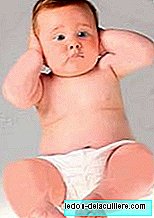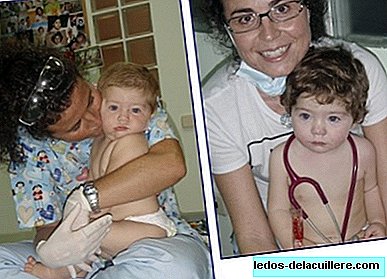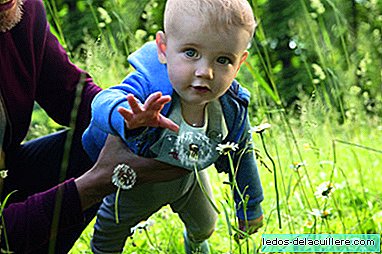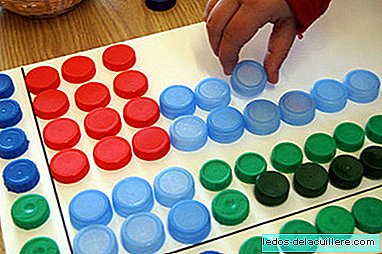
Ear problems detected on time are easier to correct, so test your child's hearing ability to know as soon as possible what steps to take.
The sooner the baby's hearing is evaluated, the sooner it can be treated and subsequent problems in language acquisition and development, in learning and in their social relationships will be avoided.
Normally, the ears of newborns in the clinic are checked, especially those who may have risk factors such as low birth weight, family history or other medical factors. Although you should know that 50% of babies with hearing loss are born healthy and have no family history.
Babies don't know how to tell us they don't hear, but there are some signs that you should pay attention to before three months to know if your child could have a hearing defect.
- if it's too quiet and you notice it as absent
- if you don't turn your head to familiar sounds
- if it is not disturbed before a sudden and loud sound, like a bang
- if you don't move your head and eyes where the sound or voice comes from
- if you don't recognize the voice of the parents smiling or stop crying Also, during the first year you should start imitating sounds and answering their name. After two years, you should start imitating simple words and forming two-word phrases. And at three, you should start to understand simple instructions.
If you suspect that it could have a defect, urgently consult a specialist. To rule out problems there are very simple, non-invasive medical tests that do not hurt and will leave you calmer. One is acoustic otoemission, which consists of sending a sound through a headset that is placed on the baby and picking up the response that the ear returns. Another, is the PEATC test (acoustic evoked potentials of the brain stem), it involves placing sensors on the head to detect the electrical activity of the brain when hearing a sound.
With these simple tests you will be able to detect any hearing defect in time to solve it and that your child can develop a normal life in the future.












